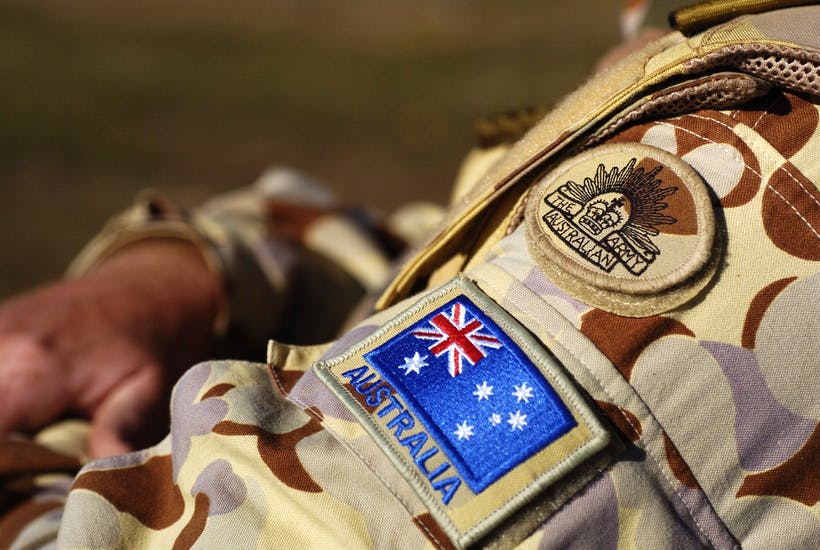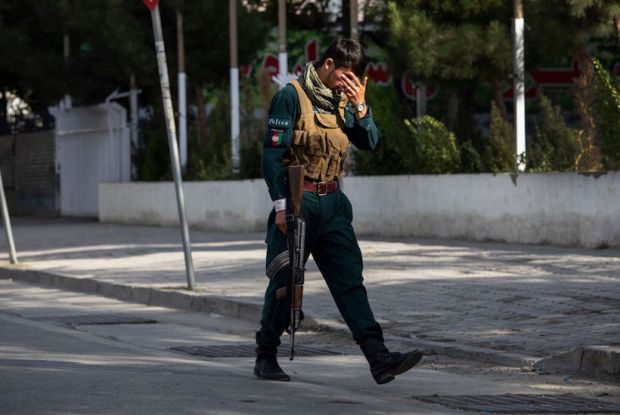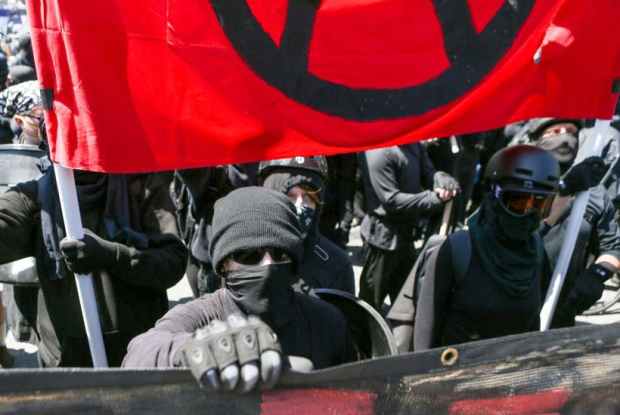Not the end, but perhaps the beginning of the end: the United States and the Taliban have signed a preliminary agreement in Doha, Qatar, on a conditional withdrawal of the last 12,000 American troops from Afghanistan — along with ADF personnel in Kabul and Khandahar.
It’s not a peace agreement, as it does not involve the Afghan authorities. It’s not a capitulation either, though the Taliban are certainly presenting it as such. At most, it’s a countdown to disengagement, which is what Donald Trump wants it to be. The President has never disguised his opposition to open-ended military operations overseas and wants to bring the boys back home early in his second term, fulfilling another election promise. What becomes of Afghanistan is very much a secondary issue for Trump.
So what can one make of this end game of what has become cliched as “America’s longest war”, now in its 19th year? As someone who supported the US and its allies entering Afghanistan in October 2001 and has blogged about the Afghan war and peace regularly in the mid-naughties, a few key points spring to mind.
1. The United States and its numerous allies, including NATO and Australia, were right to seek vengeance against the Taliban and al Qaeda and to seek to remove them from power and destroy them. Any other response in the aftermath of September 11 would have been insufficient.
2. Afghanistan today is a better place than it has ever been in its long and tumultuous history, albeit that’s a comparison with a pretty low base. It is certainly better than at any time since its halcyon days of the 1960s and the early to mid-70s, when the country under the monarchy had a bit of a Shangri-La quality about it, attracting a steady stream of backpacking hippies in search of the exotic and the intoxicating. By just about every social and economic indicator life has improved for the people, however slowly and unevenly, whether you are talking about girls going to schools or the economic opportunities or personal freedoms.
3. The cost of that process has been quite staggering: around $2 trillion of mostly American money, 3500 mostly American lives, nearly 70,000 Afghan soldiers and police, probably an equal number of Taliban and their allies, tens of thousands of civilian casualties. Reasonable people will differ on whether it has been worth it – or if there have been any reasonable but less costly alternatives.
4. After all this, Afghanistan is still only marginally viable as a polity and a nation-state: it is financed overwhelmingly by foreign aid (again, mostly American), the political system is unstable, crippling problems like corruption persist. It is not a failed state it has been between 1989 and 2001, but it is precarious. As Paul Collier and other development experts argue, there is a strong correlation between poverty and conflict. There seems to be no end of the latter in Afghanistan and so no end of the former either.
5. It was always a big task and a big ask to achieve a complete military victory in a society so tribal and bellicose, particularly if one side plays by the rules (not playing by the rules doesn’t guarantee a victory either, as the Soviets had discovered in the 1980s). Trying to erect a modern democracy and a functioning economy from scratch was, if anything, an even bigger challenge, particularly against the backdrop of a continuing civil war. Much has been achieved over the nearly two decades and we cannot forget that the Afghan society has produced more quiet heroes than the all-too-loud villains. There can be a debate about this or that tactic or approach at the edges, but it would be difficult to argue that some path not taken would have led to a better Afghanistan today.
6. It’s clear that the United States can’t, and shouldn’t, sustain seemingly never-ending military operations-cum-nation building efforts around the world. Contrary to many critics, America is not an empire that stations its legions along the limes for centuries on end.
7. It’s equally clear that the US withdrawal of its vestigial forces will have a negative impact on the future of Afghanistan. The democratic central government (all three terms highly qualifiable in this case) does not look like having more luck fighting against a determined insurgency than the previous communist central government had had – or for that matter the warlord government or the Taliban government against theirs.
8. The Taliban cannot be trusted to show good faith. There is no indication that the tiger has changed its spots; they are still the gun-happy, Sharia-loving savages they have always been. Bearing that in mind, it’s difficult to see any bright future for Afghanistan as a whole. Its entire history stretching back centuries is one of coups and conflicts. Russia and the West — the British Empire — were both singed there throughout the Great Game. If the Taliban won’t succeed in violently taking back control over the government (and so continuing the civil war of 1996 to 2001, since none of their previous enemies are likely to be any less opposed to a theocratic Pashtun domination), they will uneasily settle on controlling large swathes of it, while being a constant irritants for the rest.
9. Donald Trump is a great believer in the idea that foreign people in foreign places should be solving their own problems with a minimum input from the United States. To Trump, the only thing that matters about the future Afghanistan is that it does not harbour terrorists who can harm America and her interests. Al Qaeda might not make a comeback comparable to its previous Afghan stint, but civil wars in the Islamic ummah tend to attract the worst of the faithful, becoming the open sore breeding grounds for generations of well trained and highly motivated jihadis ready to take their struggle elsewhere around the world. From that point of view, Afghanistan continues to matter, no matter what Trump thinks. Alas, we in the Western world (or for that matter anyone else elsewhere) have not yet been able to find effective ways to drain these kinds of swamps of malarial religion. Perhaps the tragedy is that there are none.
10. Peace will only ever come through absolute domination or absolute exhaustion. The former is unlikely to ever happen in Afghanistan and there are no signs of the latter.
The Doha agreement is perhaps inevitable, seeing that no one on either side of the American politics has any more appetite for Afghan nation-building. It’s not peace in our time or peace with honour, in fact it’s not peace at all.
But it’s not Vietnam either. It’s not good news or bad news from Afghanistan, just melancholy.
Arthur Chrenkoff blogs at The Daily Chrenk, where this piece also appears.
Got something to add? Join the discussion and comment below.
Got something to add? Join the discussion and comment below.
Get 10 issues for just $10
Subscribe to The Spectator Australia today for the next 10 magazine issues, plus full online access, for just $10.


























Comments
Don't miss out
Join the conversation with other Spectator Australia readers. Subscribe to leave a comment.
SUBSCRIBEAlready a subscriber? Log in